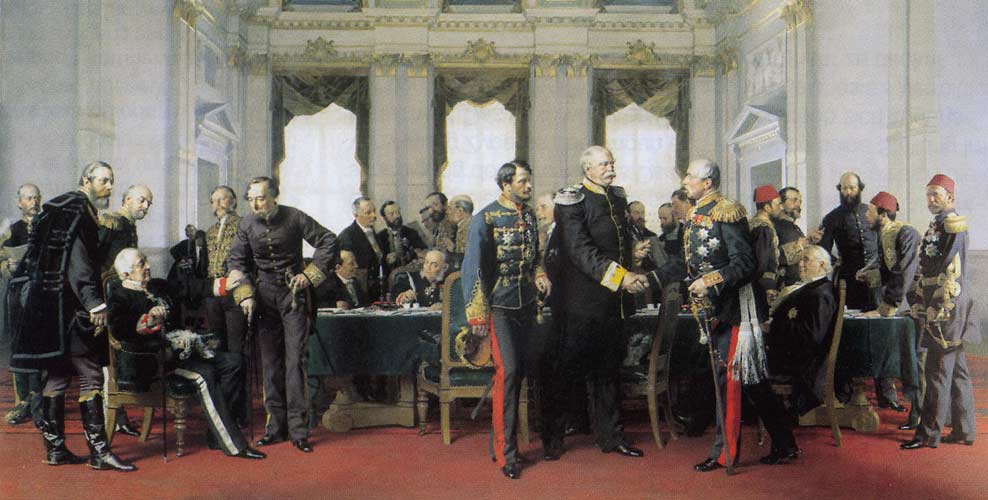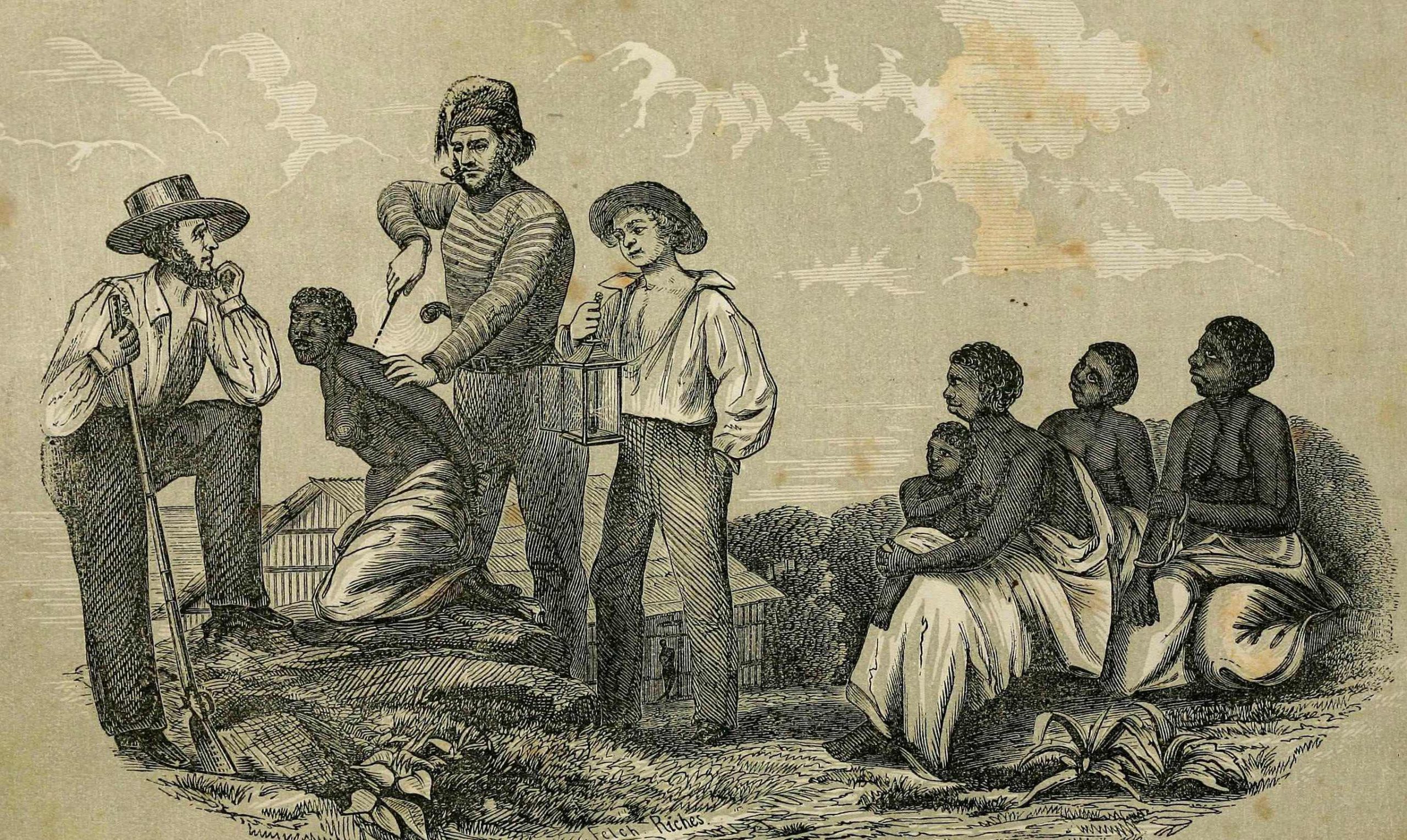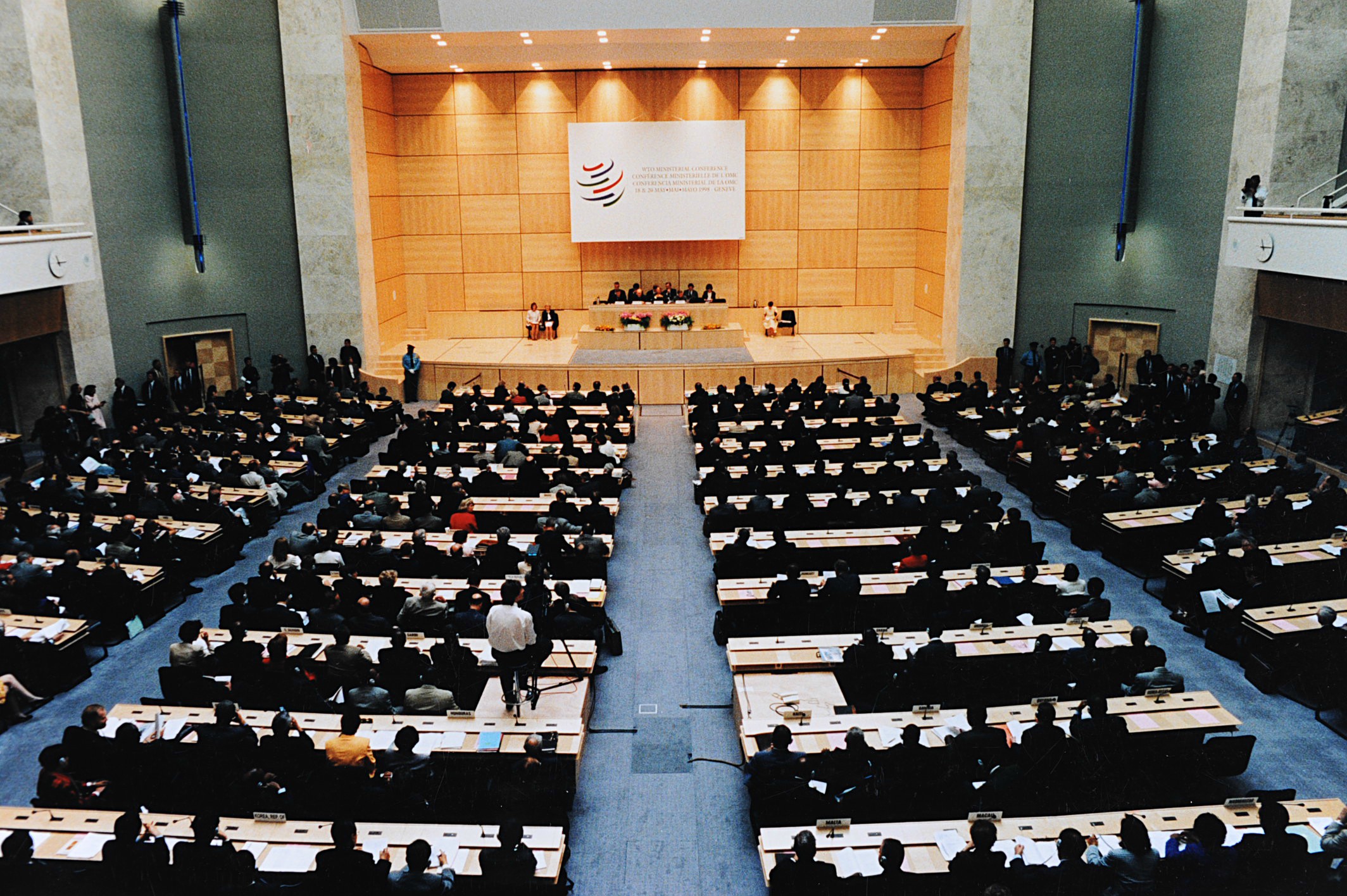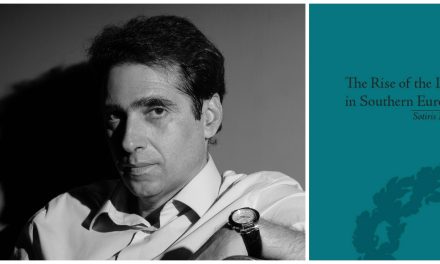Ntina Tzouvala is a senior research fellow at the ARC Laureate Program in International Law at the University of Melbourne. Dr Tzouvala has previously worked as a lecturer at Durham Law School, where she also completed her PhD thesis entitled “Letters of blood and fire: a socio-economic history of international law”. Her research places particular emphasis on history, theory, and the political economy of international law, while more recently her work has been focusing on the role of international law in the construction of European peripheries, the political economy of interventionism, and their lasting impact for the region. Greek News Agenda* spoke with Ntina Tzouvala on the multifaceted impact of international law on the history of the Balkans, the intertwinement of legal and economic practices, as well as more recent trends in the field of international law.
Your main body of research has focused so far on the parallel emergence of international law and the expansion of the capitalist mode of production on a global scale starting from the second half of the 19th century. Could you explain how you view this symbiotic relationship and what is the particular position of the Balkans in this historical context?
In the last two decades, international lawyers have become increasingly interested in (and concerned about) the colonial and imperial past of international law. Inspired by postcolonial studies, notably the works of Edward D. Said and Dipesh Chakrabarty, this turn has produced invaluable insights into the way international law justified and rationalised Western imperialism, but also into the fact that core doctrines and concepts of the discipline (including, ‘sovereignty’, ‘territorial integrity’ or even the notion of the ‘state’) are products of the imperial encounter and therefore carry its politics, contradictions and violence to the present day. It is my view that, in order to better understand this symbiotic relationship we also need to factor in capitalism as a truly global system of production and exchange for profit. In this respect, international law did not only (or primarily) manage cultural difference between the West and the ‘rest’ but it mediated, in very messy and complicated ways, the transformation of colonies, semi-colonies and protectorates along the lines of capitalist modernity and facilitated their incorporation into an asymmetrical global economy. The Balkans are in fact a very interesting, but largely neglected, example of this connection. It is a well-known fact that the Great Powers became actively involved in the affairs of the Ottoman Empire, a fact that was both the consequence of and an engine for the Empire’s decline. Often, liberal internationalists trace the origins of ‘humanitarian intervention’ back in the 19th-century engagement of European states with the declining Ottoman Empire. This is not necessarily a very noble genealogy, since it reveals pretty clearly the selectivity of such humanitarian sentiments, the importance of Orientalism or outright racial thinking in the shaping of this form of ‘muscular humanitarianism’ and the impossibility to distinguish between state-lend, armed compassion for the suffering of others and naked self-interest. However, what is less known is that the Great Powers deployed international legal arrangements to make sure that the transition from the Ottoman Empire to nation-states in the region would not disrupt the reproduction and profitability of foreign capital. For example, the 1878 Treaty of Berlin included important provisions that dictated that the newly independent states of Bulgaria, Montenegro, Eastern Rumelia and Serbia would assume a proportion of the Ottoman debt and/or of the Ottoman railway concessions. These provisions were tailored so as to safeguard the interests of British, French, German and Austrian capital, especially since railways constituted one-third of all foreign investments in the region. Therefore, protecting capital and safeguarding legal continuity and uniformity despite political change has been an important function of international law at least since the 19th century (another good example here is Latin America).

In what sense have racial and cultural assumptions of “civility” and “barbarism” been historically intertwined with the selective use of international law? Would you suggest we view those stereotypes in relationship with geopolitical and economic strategies?
Reading international law textbooks published before the 1960s is a supremely uncomfortable experience. This is because the vast majority of authors (even though originating outside the West, were nonetheless often educated in Western institutions or used Western sources), subscribed to the idea that peoples and political communities were divided into three categories: they were civilised, semi-civilised and uncivilised. This was not just a matter of politically incorrect language, but had direct legal consequences, since only ‘fully civilised’ states enjoyed the full range of rights and duties under international law, while the rest had their legal autonomy significantly circumscribed. For example, the imaginary of the Ottoman Empire as insufficiently civilised authorised a wide range of interventions, ranging from the exclusion of foreign merchants and missionaries from local laws to armed interventions. Even though the relationship between race and civilisation was and remains a complicated one, it is beyond doubt that racial imaginaries were inextricably linked to this civilisational ‘scale’. For example, many legal scholars were pretty open about their conviction that certain ‘races’, notable indigenous peoples in white settler colonies or black Africans, were inherently inferior and therefore, the possibility of them becoming civilised at some point was remote or only theoretical. For example, even though slavery in Africa or in Asia were condemned, and were often used as an indicator of insufficient levels of civilisation, slavery in the southern states of the US or compulsory labour in all European colonies were treated with a certain degree of deference by international lawyers, the reason of course being that this form of slavery benefited white masters, plus it was also incorporated in thoroughly modern and capitalist systems of international trade. In fact, the history of international law elucidates the fact that the history of race and racialisation cannot be properly understood unless it is ‘read’ together with the history of capitalism.

A few years ago, all this might have sounded interesting but somewhat parochial. After all, sometime during the Cold War the language of international law stopped being explicitly racist and focused on civilisational differences. However, both the ‘war on terror’ with its overt and covert islamophobia and the contemporary revival of biological racism, including its use to justify reactionary, exclusive policies, indicates that this entanglement between law, capitalism and (overt) racism is not a thing of the past. This, in turn, raises the question to what extent racial or civilisation assumptions are still part of international law, even if they remain implicit. My answer is that international law has become ‘colour-blind’ in a very particular and superficial way, while it is still complicit in the reproduction of racial hierarchies and the unequal distribution of rights, duties and resources. For example, international investment law -albeit nominally a technical, dispassionate field- has played an important role in countering efforts for economic reforms that would help diminish the racial wealth gap in post-apartheid South Africa. Moreover, the idea that certain peoples or states are inherently corrupt, violent, incompetent or weak has been central in the articulation of far-reaching exceptions to the rule that prohibits the use of force amongst states (Article 2 paragraph 4 of the United Nations Charter), which is often considered to be one of the most important rules of the post-1945 international legal order. Therefore, I think that one of the most urgent tasks for international lawyers is to see through the tale of technicality, neutrality and colour-blindness international law tells about itself and think carefully about how our discipline relates to the contemporary rise of the most reactionary strands of the far right on a global scale.
What are the continuities but also any potential points of rupture in the field of international law throughout the 20th century? How would you describe the current situation?
One could write ten PhDs on this topic and just scratch the surface of this question. We could perhaps single out a few. First, I think that the fragmentation of international law in specific fields (international environmental law, international investment law, international human rights law, etc) has been an important defining feature of international law during the last four decades or so. What we have witnessed is the proliferation of a multitude of institutions, international organisations, and specialist bodies (such as the World Trade Organization, the International Criminal Court or various regional and international human rights bodies) with their own procedures, traditions, professional ethos and way of interpreting international law. This is a trend that has important implications not only for international law as a discipline, but also for international politics. For example, it is well-documented that on various occasions powerful states have used this reality to block reforms that would have been beneficial to developing states. For example, in the 1970s developing states launched an initiative known as the New International Economic Order, in order to reform international legal rules pertaining to natural resources, multinational corporations or technology transfers. They did so using their numerical majority in the United Nations. As a reaction to these efforts, rich states channeled economic decision-making toward international institutions where voting rights are proportionate to budgetary contributions (notably, the International monetary Fund and the World Bank). More recently, the controversial mega-regional trade and investment agreements, like TTIP, TTP or CETA, can be partly understood as an effort by the US, the EU and Canada to move decision-making regarding trade away from the World Trade Organization, which -albeit not at all perfect- operates on the principle of one state one vote and has enabled different groupings of developing states to defend their interests. Fragmentation into many sub-fields and institutions is, therefore, a defining characteristic of ‘modern’ international law, and it cannot be ignored by those interested in international politics and global economic justice.

As for continuities, I think it is worth going back to the example of global war on terror, which has put pressure on many core rules of post-1945 international law, including the prohibition on the use of force. Of course, as those caught in the ‘hot’ zones of the Cold War know very well, this prohibition did not stop the USA or the USSR from using force, but it did force them to deny that they ever did so or to put forward particular sorts of arguments on why intervening in foreign states was lawful. 9/11, however, happened in the context of US hegemony and successive administrations (Republican and Democrat) as well as academic lawyers felt that it was an opportunity for a thorough revising of these aspects of Cold War international law that clashed with their strategic interests. Many arguments put forward were genuinely novel, but others sounded uncomfortably familiar to those studying the history of international law. Take, for example, the argument (which is gaining traction amongst governments and academics) that force can be used in the territory of states that are ‘unwilling or unable’ to stop terrorists. This sort of argument does away even with formal legal equality amongst states, and only gives the full range of legal rights to powerful states, or to states that follow specific counter-terrorism policies. This way of organising lawful violence closely resembles 19th-century, imperial international law, which, in turn raises the question whether international law ever became truly post-colonial.
To what extent does the region of the Balkans continue to be “a site of experimentation for international legal techniques” in the 21st century?
As I mentioned earlier, debt has been central in the economic ordering of the Balkans. Ensuring the servicing of debt, in particular, was an important motivation for the assumption of control over the domestic financial policy of Greece or the Ottoman Empire by the Great Powers. Of course, the similarities between this history and Greece’s recent adventures with the IMF and the EU are too stark to miss. Before the 2008 economic crisis, it was the violent dissolution of Yugoslavia and its aftermath that brought the Balkans at the centre of international interest, even though much of the political and legal commentary focuses on the lack of intervention, notably in the instance of genocide in Srebenica, or on the question of (self-styled) humanitarian intervention in Kosovo. What has received, perhaps, less attention is that in the aftermath of these conflicts both Bosnia and Herzegovina and Kosovo were placed under international territorial administration. For example, following the controversial bombing campaign of 1999, the UN Security Council bestowed the United Nations Interim Administration Mission in Kosovo (UNMIK) with essentially unlimited legislative, executive and judicial power. UNMIK performed all the functions of a sovereign state, and for that matter of one that has unlimited functions and is not bound by law. This assumption of full governmental functions by an international authority was justified with more and less explicit invocations of the incapacity of Kosovars to govern themselves and a certain equation of international actors as more rational, benevolent and effective. Importantly, UNMIK implemented a thorough programme of domestic reform along neoliberal lines that included the privatisation of important sectors of the economy, including agriculture, the introduction of flat tax rates, and the promulgation of a constitution that legally entrenched neoliberalism straightjacketing politics.
In some of your more recent publications you have argued that, contrary to a widely held belief, what you term as neoliberalism does not entail less or softer law but, instead, a rather increased legalisation and judicialisation of international trade law. Would you say that this also applies to domestic legal frameworks or are we talking about two opposite phenomena?
Neoliberalism is commonly associated with the retreat of the state, deregulation and deference to private actors, individuals and markets. In reality, both neoliberal theory and practice is not uniformly hostile to the state at all. Rather, neoliberals acknowledge the crucial role of the state in the creation and reproduction of competitive markets and many -however, not all- have been intensely relaxed with the repressive branches of the state, including prisons, the police, the army or border controls. In international law, the global ascendance of neoliberalism in the 1990s was also marked by the judicialisation of trade and investment disputes. Judicialisation and legalisation of economic decision-making has, therefore, been a core characteristic of the neoliberal international legal order. At the same time, we need to also pay attention to the opposite trend: financial or business regulations were relegated to the realm of ‘soft law’ and ‘self-regulation’. Schematically, the limitations to states’ redistributive and planning capacity have become ‘hard’, while limitations to the behaviour of transnational capital remain ‘soft’.
The picture is, of course, much more complicated when it comes to domestic legal orders, not least because of the sheer number of states and the vast differences of wealth, political and legal culture that separate them. Therefore, it would be impossible to draw general conclusions. However, it is worth noting that the enhancement of the role of the judiciary and the promotion of a certain version of the ‘rule of law’ understood primarily as strong protections of property rights and counter-majoritarianism have been at the heart of many ‘structural adjustment’ projects led by the World Bank and the International Monetary Fund in the post-soviet world and beyond. It might be superficially paradoxical, but the United States have also witnessed a similar trend, although in this instance the origins of the transformation are much more clearly endogenous. Progressives argue for a drastic delimitation of the functions of the courts, and especially of the US Supreme Court, which they (rightly) perceive to be hostile to economic redistribution and to efforts to curtail the political and economic influence of big business interests. I have suggested in the past that the framework of ‘authoritarian statism’, proposed by the Marxist philosopher Nicos Poulantzas, could be a useful lens for theorising this trend and for situating contingent development (be it domestic or international) within a broader structure of transformation of the relationship between the state, international institutions and the political economy.
Being sensitive to such ongoing transformations also means that the present moment needs to be taken seriously. Already since the days of the Obama administration the US has adopted an aggressive stance toward the Appellate Body of the World Trade Organization blocking the appointment of new judges and therefore, paralysing its function. On the one hand, this raises the question how unique Trump’s hostility toward international law and institutions really is and whether we should never forget that, party politics and peculiar personal styles aside, the US attitude toward international law has consistently been over-determined by its position as a global superpower. On the other hand, this example combined with the rise of right-wing authoritarians that are to an extent hostile to courts (even though not necessarily to other forms of counter-majoritarianism) raises the question whether this trend of the judicialisation of economic decision-making is about to be stalled or even reversed.
*Interview by Dimitris Gkintidis
D. G.
TAGS: FOREIGN AFFAIRS | HISTORY | INTERNATIONAL RELATIONS | RESEARCH













